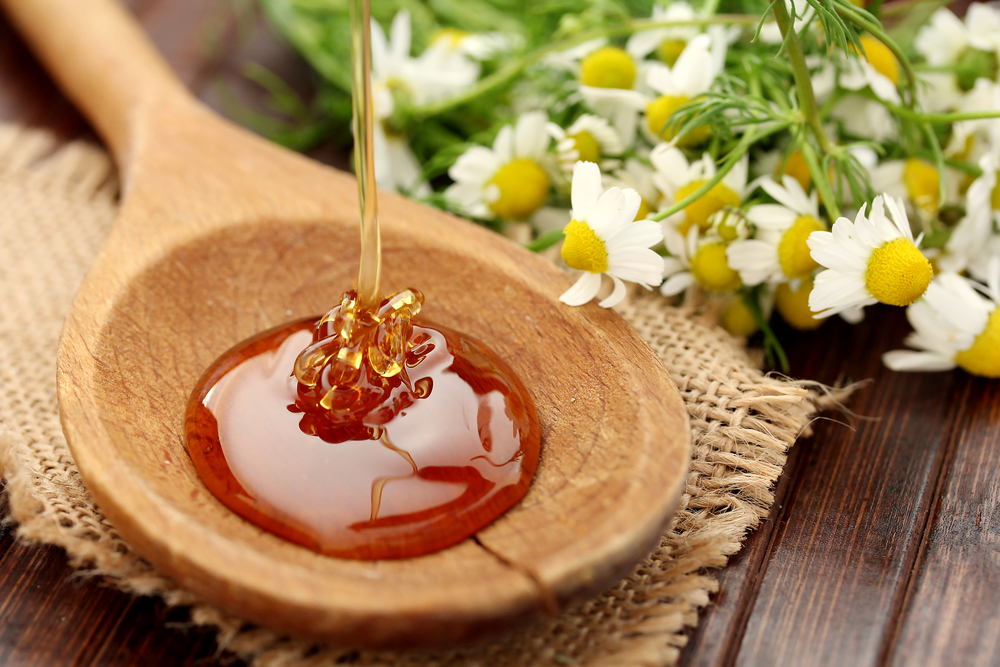 Honey has been used as a remedy for various health conditions, but it wasn’t until the late 19th century that studies revealed that honey has natural antibacterial qualities.
Honey has been used as a remedy for various health conditions, but it wasn’t until the late 19th century that studies revealed that honey has natural antibacterial qualities.
One particular variant of honey that has been touted for its health benefits for the young and old is manuka honey.
Manuka honey originates from Australia and New Zealand, and is made by bees that pollinate the native manuka bush. Most types of honey contains hydrogen peroxide which gives its antibiotic quality, but manuka honey comes with many other ingredients with antibacterial qualities.
Deciphering the MG and UMF in manuka honey
Manuka honey has an antibacterial component called methylglyoxal (MG), which is found in most types of honey, but in small quantities.
The MG in manuka honey comes from the conversion of another compound, dihydroxyacetone, that is found in high concentration in the nectar of manuka flowers. The higher the MG concentration, the stronger the antibiotic effect.
To rate the potency of manuka honey, producers have a rating scale called UMF, which is short for Unique Manuka Factor. The UMF rating indicates the concentration of MG.
Manuka honey needs a minimum rating of 10 UMF in order to be considered therapeutic.
What does science and research say about the health benefits of manuka honey?
From an age-old remedy for wound healing to soothing sore throats and combating oral health issues, here’s how manuka honey benefits our health – according to science.
1. Wound healing
An age-old remedy, honey has been used to treat wounds, burns, sores and boils due to its antibacterial and antioxidant properties. The elements present in honey also helps to maintain a moist wound environment and protective barrier which prevents microbial infections in the wound.
Various studies have shown manuka honey’s abilities to speed up wound healing, fast-track the regeneration of tissue and decrease pain in burn patients. For instance, a two-week study was conducted to investigate the effects of applying a manuka honey dressing on 40 people with non-healing wounds. The results showed that 88% of the test subjects experienced that their wounds decreased in size. This was attributed to the acidic wound environment which favours wound healing.
2. Sore throat
The next time you that you’re having a sore throat episode, do reach out to that bottle of manuka honey for some relief. Its antiviral and antibacterial properties can reduce inflammation and target on the bacterial that cause pain. Apart from attacking the bacteria, manuka honey also coats the inner lining of the throat to soothe the area.
A study conducted on patients undergoing chemotherapy treatment for head and neck cancer observed the effects of consuming manuka honey on Streptococcus mutans, the bacteria responsible for sore throats. At the end of the study, the researchers noted a significant decrease in the bacteria after the patients consumed manuka honey.
3. Oral health
To maintain good oral health and avoid tooth decay, it is important to minimise bad oral bacteria that can cause plaque formation. At the same time, it is also crucial not to totally get rid of the good oral bacteria that is responsible for keeping your mouth healthy.
Studies have shown that manuka honey helps in oral health by attacking harmful bacteria in the mouth that’s associated with issues such as plaque formation, gum inflammation and tooth decay.
A separate research examined the effects of having participants chew or suck on a honey chew that was made of manuka honey. The group assigned to the honey chew showed a significant reduction in plaque and gingival bleeding, compared to those who chewed in regular sugar-free gum.
While the consumption of honey for good oral health may seem counterintuitive, however, unlike candy and refined sugar, the potent antibacterial properties of manuka honey make it unlikely to cause cavities or tooth decay.
Is manuka honey safe for everyone?
Manuka honey is generally safe for most people to consume – however, the following groups of individual may need to exercise caution and seek further medical advice before choosing to consume manuka honey:
People with diabetes
Regardless of its healing properties, all types of honey contain natural sugar. Thus, diabetic patients should get their doctor’s advice beforehand as the consumption of manuka honey may affect their blood sugar levels.
Those with honey or bee allergy
Individuals who are allergic to other types of honey or bees may flare up after ingesting or applying manuka honey. Thus, it may be wise to err on the side of caution and avoid consuming manuka honey unless advised otherwise by their doctor.
Babies below one year old
As directed by the American Academy of Pediatrics, it is strongly recommended not to give honey to babies below one due to the risk of infant botulism, which is an illness that happens when a baby ingests bacteria that produces toxins inside the body.























